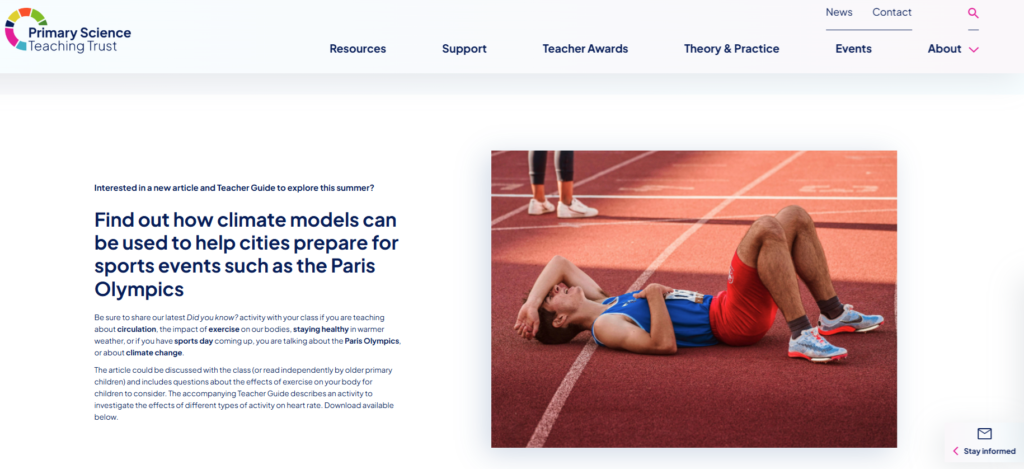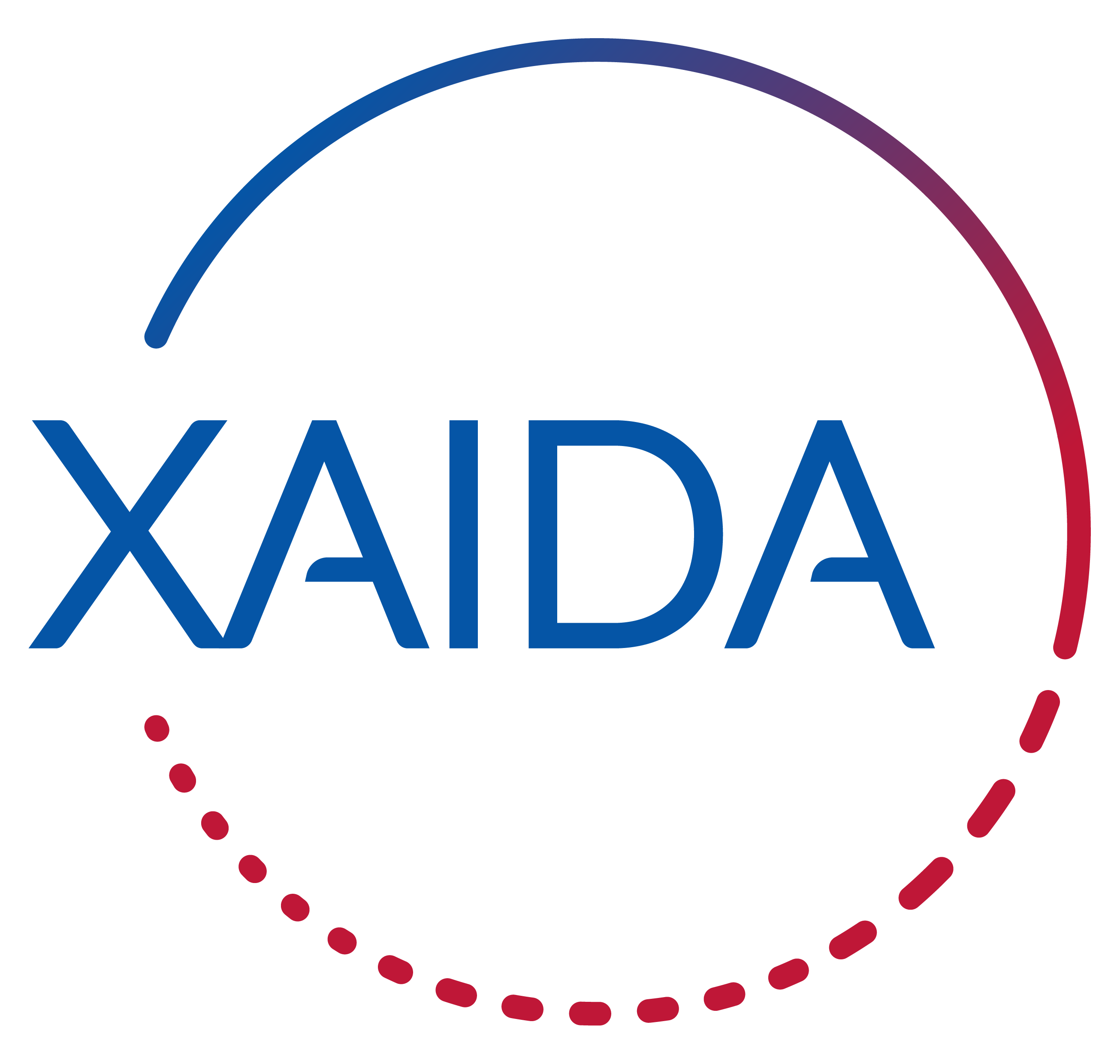Teaching Material with PSTT: Climate models help us plan sports events
PSTT is the Primary Science Teaching Trust working accross the United Kingdom. PSTT is working closely with the project’s scientists to produce ‘Did You Know’ articles and other teaching material to help Primary School teachers explaining science and extreme events.
Visit PSTT website to see their presentation and resources.
This educational material is based on the article Yiou, P. et al. ‘Ensembles of climate simulations to anticipate worst case heatwaves during the Paris 2024 Olympics’ in Clim Atmos Sci 6, 188 (2023).
« The Earth is about 4.5 billion years old and it has warmed up and cooled down in the past. Now, it is warming faster than ever before. Burning fossil fuels has increased carbon dioxide in the atmosphere. This is a heat trapping gas and acts like a blanket around the Earth. Average temperatures have risen by about 1.2 °C in the last 200 years.
We need to think carefully about summer sports events so that they are safe for athletes and spectators. For example, how hot could the summer Olympic Games in Paris get? Some scientists suggest that we must plan for the worst possible cases. »
See more below!
Source: PSTT – last consulted on January 16, 2025

Image: PSTT – https://pstt.org.uk/resources/i-bet-you-didnt-know/
‘DID YOU KNOW?’ Material: Cutting-edge research can be linked to primary science curriculum topics.
Aimed at teachers and adults interested in introducing cutting-edge science research projects to primary age children, PSTT has created freely downloadable Did you know? articles which are linked to primary science curriculum topics.
Articles are written in language that primary children can understand and suggest questions for children to consider.
Accompanying Teacher Guides (which can be used a classroom presentations) describe activities and investigations that children can do related to the research.
See more: https://pstt.org.uk/resources/i-bet-you-didnt-know/
This educational material is based on the work of Pascal Yiou (IPSL) and other XAIDA researchers. It is an adaptation of the article Yiou, P. et al (2023) available in Open Access.
